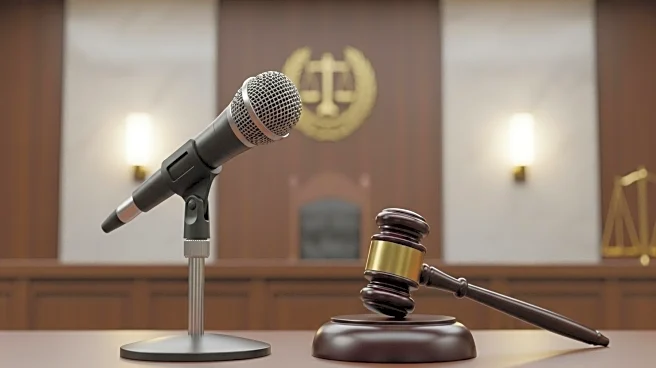What's Happening?
A federal judge has dismissed a defamation lawsuit filed by Drake against Universal Music Group concerning Kendrick Lamar's diss track 'Not Like Us'. The lawsuit, initiated by Drake in January, accused Universal Music Group of defamation for publishing and promoting the track, which allegedly spread false and malicious narratives about him. Judge Jeannette A. Vargas ruled that the lyrics in Lamar's track, which included accusations of Drake being a pedophile, were considered nonactionable opinion rather than defamatory statements. The judge noted that the context of a heated rap battle, characterized by incendiary language and offensive accusations, would not lead a reasonable listener to believe the track conveyed verifiable facts about Drake.
Why It's Important?
The dismissal of Drake's lawsuit underscores the legal protections afforded to artistic expression, particularly in the context of music and entertainment. This ruling highlights the challenges artists face when attempting to litigate over creative content that includes hyperbolic or opinionated language. The decision is significant for the music industry as it reinforces the notion that diss tracks, a staple in rap culture, are often viewed as artistic expression rather than factual assertions. Universal Music Group's victory in court allows them to continue promoting both artists without the burden of legal disputes, potentially influencing how record labels handle similar conflicts in the future.
What's Next?
Drake's legal team has announced plans to appeal the ruling, indicating that the legal battle may continue in higher courts. The appeal process could further clarify the boundaries of defamation in artistic works, particularly in the music industry. Meanwhile, Universal Music Group has expressed satisfaction with the court's decision and intends to continue its collaboration with Drake, focusing on promoting his music and career. The ongoing legal proceedings may attract attention from other artists and labels, potentially influencing future cases involving artistic expression and defamation.
Beyond the Headlines
The case highlights the cultural significance of rap battles and their role in shaping public perceptions of artists. The legal discourse surrounding this lawsuit may prompt discussions about the ethical implications of using provocative language in music and its impact on artists' reputations. Additionally, the case may influence how artists approach diss tracks, balancing creative expression with potential legal consequences.










